Further information about fellows can be got by clicking on their names, which in most cases will take you to their websites. Fellows are encouraged to communicate with one another directly, as well as to provide occasional updates for this site. For memorials of deceased fellows see in memoriam.
 |
David, Lord Alton of Liverpool (1996) continues to be active in relation to a number of human rights issues around the world. For information about these see the following reports: 2010 – Sudan On The Brink 2009 – Tibet: Breaking the deadlock 2009 – North Korea: Carpe diem 2004 – Darfur – The Genocide continues 2004 – Congo – The Killing continues 2004 – Rwanda- The Killing continues |
 |
Dale Miller (2007) writes from Old Dominion University. His book John Stuart Mill: Moral, Social and Political Thought was published by Polity in 2010. He writes, “I did work on this at St. Andrews, and I acknowledge CEPPA for the fellowship”. |
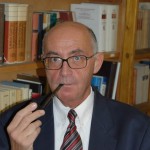 |
Kristof Nyiri (1993) continues to teach philosophy in Budapest. From 2001 to 2009 he directed an international research programme on the social and cognitive consequences of mobile telephony, editing eight English-language volumes in the process. Recently he became infatuated with the philosophy of time, issues in which he attempts to blend with issues in the philosophy of images. |
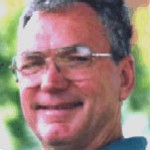 |
Max Hocutt (1987) is one of two philosophers (the other is Quine) mentioned in B.F. Skinner’s autobiography. Since publishing Grounded Ethics (2000) which presents an empiricist theory of normative judgments he has continued to publish in philosophy and psychology, with a number of recent pieces on the political philosophies of Jean Jacques Rousseau, Jeremy Bentham, and Cass Sunstein. |
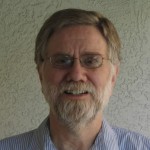 |
Hugh LaFollette (1986) has held the Cole Chair in Ethics, at the University of South Florida St. Petersburg since 2004. Besides editing a 3rd edition of Ethics in Practice: An Anthology (2007) and the Oxford Handbook for Practical Ethics (2003) he recently published The Practice of Ethics (2007). |
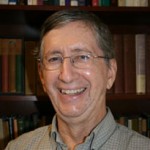 |
George Graham (1989) writes from Atlanta, ‘Two years ago I joined the faculty of Georgia State University in Atlanta as a Professor of Philosophy and Neuroscience, having spent the previous five years as the A.C. Reid Professor of Philosophy at Wake Forest University in North Carolina. Just recently I have published The Disordered Mind with Routledge and have been working on philosophical issues associated with mental illness. |
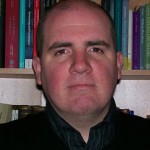 |
Thom Brooks (2004) continues to edit the Journal of Moral Philosophy which he founded in 2004 with the aim of promoting ‘lively discussions and debates that will be stimulating for both established academics and the wider community’. He is currently writing on the capabilities approach, global justice, and the philosophy of crime and punishment. He is also co-editing Rawls’s Political Liberalism with Martha Nussbaum. |
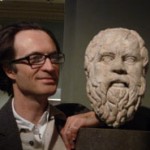 |
Pierre Destrée (2005) followed his fellowship at St Andrews, his first stay ‘in the Anglo-Saxon world’ with a visiting professorship at University of Maryland. Recently he has been working with Stephen Halliwell of the School of Classics at St Andrews on a conference on Art and Morality in Ancient Philosophy to which Catherine Collobert (2003) is also contributing. |
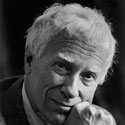 |
Nick Wolterstorff (1995) writes to say “I remember my term in St Andrews with great warmth” and to report that having retired from Yale he is now a senior fellow in the Institute for Advanced Studies in Culture at the University of Virginia. When in St Andrews he delivered the Gifford Lectures the main part of which was published as Thomas Reid and the Story of Epistemology (2001); with other parts now appearing as chapters in Practices of Belief: Selected Essays Vol. 2 (2010). |
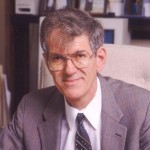 |
Fred Miller (2004) continues as Executive Director of the Social Philosophy and Policy Center at Bowling Green and remains busy on many fronts. He is working on two translations, one of Aristotle’s De Anima and Parva Naturalia for Oxford University Press, and another of Alexander of Aphrodisias’ commentary to Aristotle’s Metaphysics Lambda for Sorabji’s Ancient Commentators on Aristotle series. While at CEPPA he did the basic research and laid the foundation for a series of essays on the Greek origins of the principle of the rule of reason, two of which are now pubished with two others forthcoming. |
 |
Rick Momeyer (2009) echoes many other former fellows in remembering with fondness his time in St Andrews, enjoying both the social and academic sides of things. He writes “We greatly enjoyed living in the centre of St. Andrews … and do hope that this wonderful program can be sustained even through these difficult times that others may have such an opportunity. For me it was the ideal setting to complete the ms. of Valuing Life and Choosing Death, and the opportunity to share some of that thinking with the faculty and graduate students at St. Andrews was especially helpful.” |
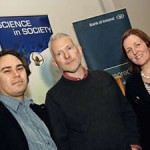 |
Bob Brecher (1998) writes “my own time in the Centre was extremely fruitful for me: I was able to try out some initial ideas in relation to an ongoing project about the nature of moral justification which I hope will eventually see the light of day in 2012 as a book entitled A Justification of Morality. That projecty was temporarily put to one side while I wrote Torture and the Ticking Bomb (2007) and a string of related articles about torture, the so-called war on terror and their connections. I have also established the Centre for Applied Philosophy, Politics and Ethics at Brighton University”. |
 |
Mark Nelson (1991) returned briefly from is period of fellowship to Hampden-Sydney College (Virginia, USA), but left after two years to take up a lectureship at the University of Leeds, where he was latterly head of the department of philosophy. In August, 2006, he returned to the USA to take up the Kenneth Monroe Endowed Chair in Philosophy at Westmont College. His research interests have continued primarily in ethics, epistemology and philosophy of religion, with papers in Analysis, Australasian Journal of Philosophy, Canadian Journal of Philosophy, and Mind. |
 |
Kimberley Brownlee (2009) continues as a Lecturer in Political Philosophy at the University of Manchester. In addition to publishing Disability and Disadvantage (with A. Cureton, eds., OUP 2009), she is working on a monograph on dissent and disobedience (under contract with OUP). The CEPPA Fellowship provided a highly stimulating environment in which to work on this project. |
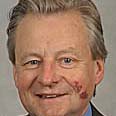 |
Dafydd, Lord Elis Thomas of Nant Conwy, (1990) – like David Alton – was an MP at the time of his fellowship. In 1992 he became a crossbench member of the House of Lords, and in 1999 was elected to the Welsh National Assembly Assembly of which he also became, and remains, Llywydd (Presiding Officer). His political interests include the development of devolution in Wales and Wales’s position as a region in Europe. |
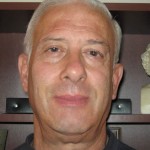 |
Lloyd Gerson (2009) continues to work on issues in the foundation of political philosophy and its intersection with ethics: moral agency, self-ownership, property, justice, and rights. He is currently finishing editorial work on the Cambridge History of Philosophy in Late Antiquity which is scheduled to appear this year. |
 |
Steven Lee (2007) looks back with great fondness to his tenure at the Centre. He is currently completing a book on the ethics of war for CUP, which was begun during his time at the Centre. He has also has published two articles which he worked on while at CEPPA: “The Moral Distinctiveness of Genocide,” forthcoming in Journal of Political Philosophy, and “Ethics and Weapons of Mass Destruction,” in Patrick Hayden (ed.), Ethics and International Relations (Burlington, VT: Ashgate Publishing, 2009). He was recently appointed to the Donald R. Harter ’39 Professorship in the Humanities at his home institution, Hobart and William Smith Colleges. |
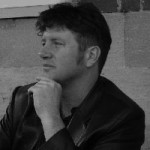 |
Adrian Walsh (2010) has recently returned to the University of New England (Australia) after an extremely stimulating and productive stay at CEPPA. He is currently working on a variety of ethical issues relating to money-Lending and banking that he developed during his time at St Andrews. |
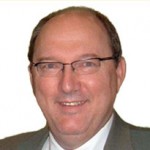 |
John Hittinger (2001) who at the time of his St Andrews fellowship was professor of philosophy in the United States Air Force Academy, is currently a professor of philosophy at the University of St Thomas, Houston Texas, and a member of the Center for Thomistic Studies. He continues to write on the importance of political participation and on philosophical issues concerning war. |
 |
Garrath Williams (2002) is now Senior Lecturer in Philosophy in the Department of Politics, Philosophy and Religion at Lancaster University. He continues to work on moral responsibility, which was the focus of his fellowship in the Centre – his most recent paper appears in Philosophy (2010), and he remains hopeful that his work will bear fruit in a book on this topic. He also has a long-standing interest in bioethics – most recently he has been working on children’s involvement inresearch as part of a project on childhood obesity (www.idefics.eu). |
 |
David McCabe (2005) found his time at the Centre to be extremely productive and restorative. While there he worked on a manuscript on liberalism which has since been published by Cambridge University Press: Modus Vivendi Liberalism: Theory and Practice (2010). David writes “Of late my research has crystallized around a set of related concerns: the problem of dirty hands in politics, the place of publicity within liberal democracies, and the ethics of leadership”. |
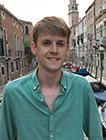 |
Joe Bowen is a Postdoctoral Researcher at the Stockholm Centre for the Ethics of War and Peace, based at Stockholm University. He recently completed his PhD at the University of St Andrews |
 |
Claire Field is a Research Fellow on the ERC Project, “Roots of Responsibility”, and she is based at UCL. She recently completed her PhD at the University of St Andrews. |
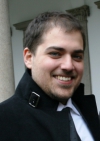 |
Stefano Lo Re completed his PhD in Philosophy at the University of St Andrews and the University of Stirling. His thesis was entitled When Others Fail to Comply: Kant on Revolution, Self-defence, and Lying. He was working under the supervision of Prof. Jens Timmermann and Prof. Sarah Broadie. He specialises in Kant’s and Kantian ethical, legal, and political philosophy. In addition to Kant’s and Kantian philosophy in general, his broader interests are history of philosophy, normative ethics, legal philosophy, and political philosophy. Before starting his PhD, he completed the philosophy BA at Università degli Studi di Milano, and then the philosophy MLitt at the University of St Andrews and the University of Stirling. |
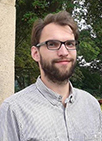 |
Janis Schaab took up a Teaching Fellowship in Philosophy at University College London after completing his PhD at St Andrews. His research focuses on ethical theory, especially Kantian approaches. |
 |
Lisa Bastian is an Assistant Professor of Moral and Political Philosophy at VU Amsterdam. She recently completed her PhD at the University of St Andrews. Her work focusses on questions surrounding rationality and normativity. |
 |
Saranga Sudarshan completed his PhD at the University of St Andrews in 2020. He works on the role of reasonable disagreement about justice in the debate between political liberalism and political realism about political legitimacy. In particular, he defends a version of political realism on the basis that it offers the best theory of political legitimacy given what he additionally defends as the best explanation of reasonable disagreement about justice: as a combination of canonical disputes and metalinguistic negotiation. He is also interested in various practical ethical issues like capital punishment and restrictions of inheritance. His main research interests are in political theory, philosophy language, metaethics, and metaphysics. https://nsaranga.github.io/ |
